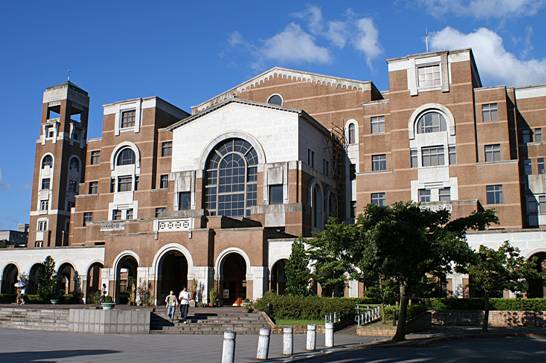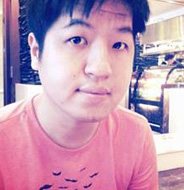|

Figure 1: Image by peellden, Creative Commons License
From when the results of the selection process for the new president of National Taiwan University were announced on Jan. 5, two months have passed, and the Ministry of Education has failed to complete the confirmation and appointment procedure, leaving Taiwan's most important educational institute without leadership. If this situation continues, it will not only be the university itself that suffers, but the entire higher educational system risks being dragged down with it, and the main culprit in this, is the inaction on the part of the Ministry of Education.
From when the former president, Dr. Pan-Chyr Yang announced his resignation, there has been continuing controversy over the selection of a new president for the university. The university has many schools and departments and great academics and from the selection of members of the presidential selection committee to the background of each of the presidential candidates, one can see the shadow of factional struggles. For example, Kuan Chung-ming, the candidate who is currently awaiting the stamp of approval from the Ministry of Education, previously served in the Kuomintang cabinet, and his words and work style mark him as quite distant from the Democratic Progressive Party (DPP), which is currently in power.
However much factional opposition occurs during the selection process, this should end when the results of the selection are reached. Who would have imagined that the announcement of the results would only trigger an even bigger furor. First a legislator expressed their concerns that Richard Tsai, the chair of Taiwan Mobile -- a company for which Kuan serves as an independent director -- was on the selection committee, but no declaration to this effect had been made by either of them in advance of the selection in violation of a possible conflict of interest; Later, there were also rumours that Kuan may have plagiarized the work of a masters' student in one of his papers. These concerns, were deliberated over at a selection committee meeting at the end of January and Kuan's eligibility for selection was confirmed "without doubt", but from this point onward, the Ministry of Education, which is tasked with the final appointment procedure has failed to complete this step, postponing it continually.
The Ministry of Education Decides Who Can Be a University President in Taiwan
According to the regulations of Taiwan's University Act, to appoint the president of a national (public) university, the school should organize a president select committee and after they have selected a candidate through a public procedure, the Ministry of Education or the local government to which it belongs should finalize the appointment. In the case of the selection of the National Taiwan University president, the committee was organized in July of last year, and publicly launched the selection process on Aug. 1; there were eight candidates in the end, including Kuan, and after a whole series of selection proceedings, including school management presentations and interviews with members of the selection committee, Kuan was chosen as the final candidate. In other words, at least on the surface, there were no irregularities in the functioning of the select committee, but the Ministry of Education, which has the right to finalize the appointment, clearly did not agree with the result.
The crux of the issue is who really has final say in the appointment of a university president? There was a similar controversy over the selection of National Taiwan University president back in 2005. At the time, the candidate who received the most votes at the selection committee was Yeong-Bin Yang, followed by Lee Si-Chen. This was sent off to the Ministry of Education, however the ministry appointed Lee Si-Chen despite the fact that he received less votes. To put an end to this kind of problem, in later selection processes for university presidents only the candidate with the highest number of votes was submitted to the Ministry of Education. This was aimed at limiting the space for administrative discretion and to ensure that the committee would be put to full use. Who would have thought that 12 years later, the Ministry of Education would push the limits even further.
What is concerning is that there is no legal recourse to hold the Ministry of Education to account for this behaviour. This is because of one little word in the University Act, "appoint", which makes a lie of the autonomy of universities. As the power to appoint lies with the Ministry of Education, however many perfect candidates the select committee decide on, they can only be appointed after they get the nod from the Ministry of Education. However, while the composition of the selection committee, the minutes of their internal meetings and even the selection procedure is all in the public domain, the Ministry of Education continues to postpone the appointment procedure only on the basis that they need more information on the minutes of the meetings and how the decision was made.
Are Taiwanese Universities Autonomous Only in Name?
Strictly speaking, this reason is no reason at all. First of all, there were three representatives of the Ministry of Education on the selection committee, one of whom was the Ministry's Vice Minister for Government Affairs Leehter Yao. If all three of these committee members attended all of the selection meetings themselves, they would be able to point to irregularities or illegal behaviour in the selection process; So if they are only pointing to problems with the selection process after the final selection has been made, the blame must surely rest with these three representatives.
Secondly, if flaws in the selection process really did constitute discipline violations, the Ministry of Education should be proactive in sending the resolution back to the committee, and demanding that the university re-initiate selection proceedings, and not leave things in limbo.
Whatever the result of the selection controversy is, it's really the Ministry of Education that should reflect on their role. If they empower the selection committee to pick a president, then the Ministry of Education's role should really just be to rubber stamp the selection; unless there is some clear violation in the selection process there is no reason to delay the appointment of the president. Given that even the selection of a university president depends on the Ministry of Education giving the nod, how can anyone say that Taiwan universities operate with autonomy?
 |
|
| Author: |
Clarence Chiang |
| Current Post: |
Senior Editor, NAIP Newsletter |
| Education: |
Business Administration, National Chengchi University, Taiwan |
| Experience: |
Reporter, CommonWealth Magazine
Reporter, Business Today Magazine |
|
|
|
| Facebook |
|
Follow the IP Observer on our FB Page |
|
|
|
|
|
|

